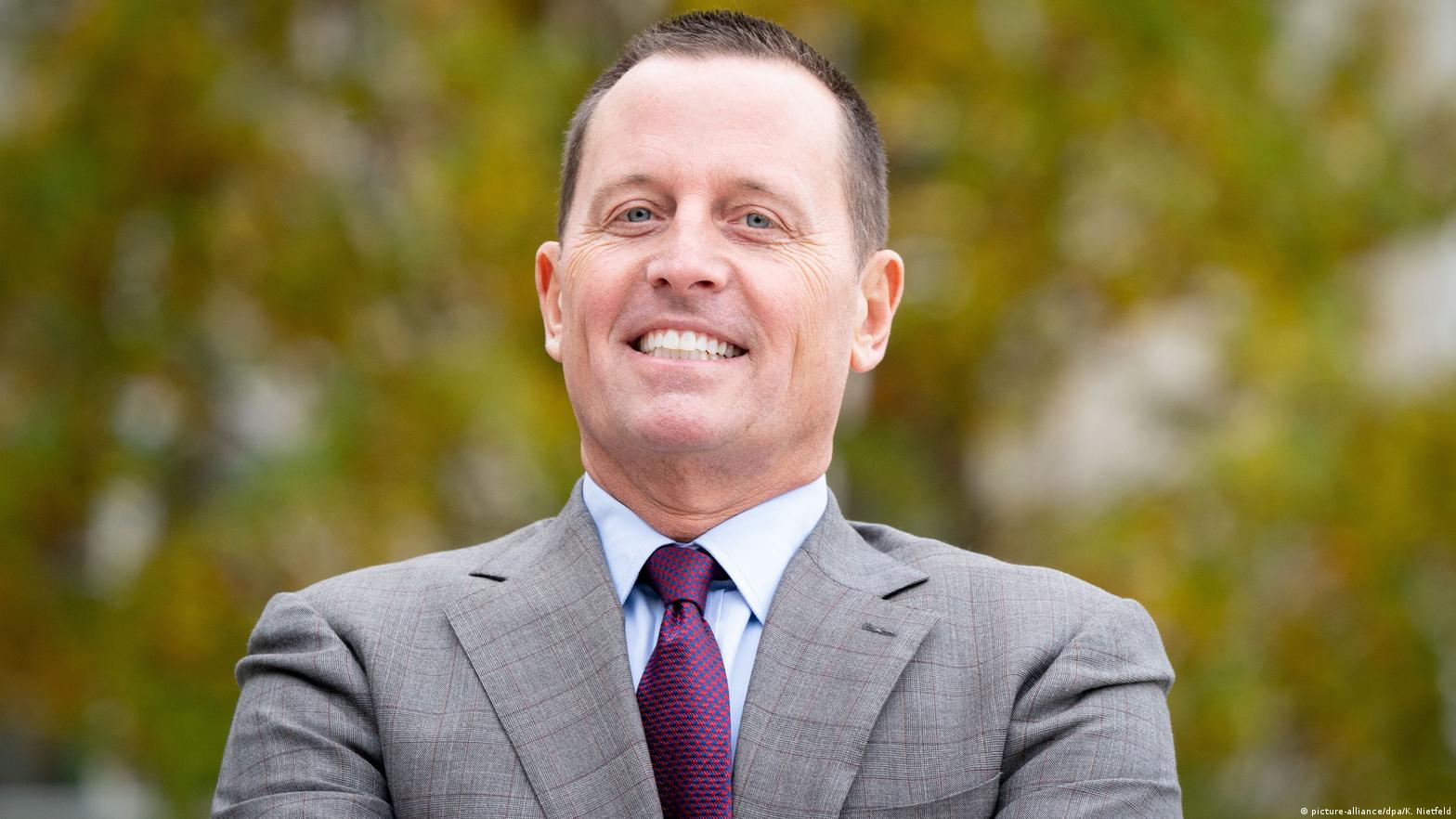US envoy to Germany given top intelligence role

Richard Grenell, the US ambassador to Germany, will become acting director of national intelligence, President Donald Trump announced on Wednesday.
The new job ends Grenell's tenure in Berlin, where he had been the top diplomat for nearly two years. He will now replace Joseph Maguire, who has been acting director of national intelligence since August, 2019.
"Rick has represented our Country exceedingly well and I look forward to working with him," Trump wrote on Twitter.
A staunch Trump ally, Grenell's time in Germany was marked by clashes with local politicians. The ambassador, known for his abrasive style, frequently defended the US president's policies and echoed many of his complaints about Berlin.
Grenell has accused Germany of having a "hypocritical" stance on reforming NATO, while not reaching the 2% of GDP spending target that Washington seeks. The diplomat also criticized German Chancellor Angela Merkel for her refugee policy and blasted the German government for considering Chinese telecoms giant Huawei to build its 5G networks.
The frequent outbursts had turned him into an unsavory figure in Berlin, with one German politician from the business-friendly Free Democratic Party even calling for his expulsion.
Read more: Opinion: Richard Grenell — Donald Trump's agitator in Berlin
A breadth of experience
Grenell has had an active career in US foreign policy, having advised several prominent Republicans before serving as spokesman to former ambassador to the UN John Bolton, under the administration of George W. Bush.
As an acting director, Grenell will not require confirmation by the Senate to serve in his post.
Democratic Senator Mark Warner, minority leader of the Senate Intelligence Committee, said Trump's move to make Grenell an acting director and not a permanent director represented "an effort to sidestep the Senate's constitutional authority to advise and consent on such critical national security positions."
The director of national intelligence post was created after the September 11, 2001, attacks on the US. It oversees the 17 civilian and military intelligence agencies, including the CIA.
jcg/nm (Reuters, AP)
